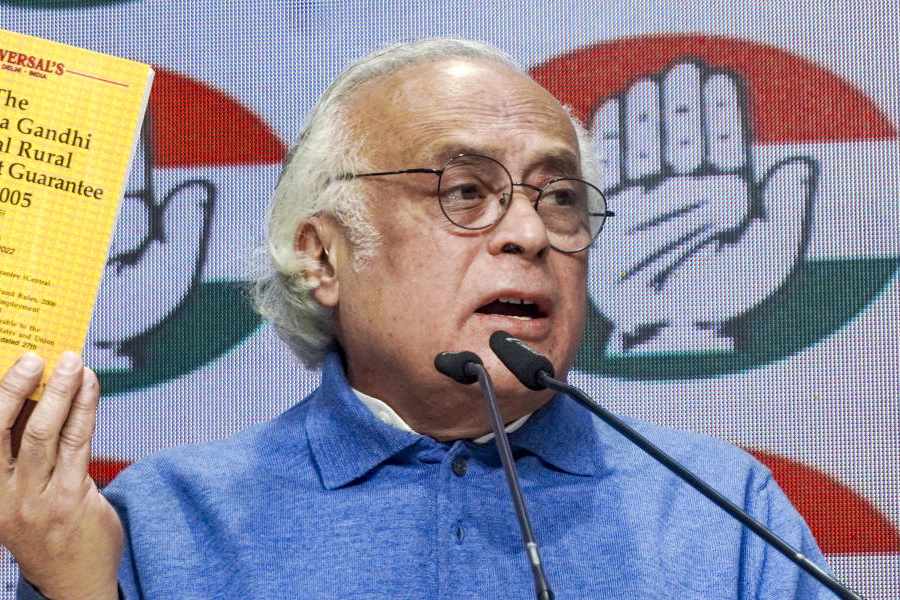Modernise old studios; set up new VFX and animation hubs; incentivise film-making in Bengal; ensure that films are a thriving career option for the youth.
At the Bengal Global Business Summit on Thursday, the president of the Film Federation of India made a pitch to turn Bengal into a “film hub” for East and Northeast India.
“Bengal boasts of a long history of iconic film studios, many of them are struggling to keep pace with international standards. We need to look for ways to upgrade studios like Indra Puri and NT1 with state-of-the-art sound stages, high-tech cinematographic equipment and world-class post-production facilities for them to keep up with the times,” said Firdausul Hasan, who helms the country’s apex national body of film producers and exhibitors.
Focus on infrastructure, financial incentives, market expansion, policy reforms, technology integration and global collaborations, Calcutta-based Hasan said in his presentation.
He also called for more collaboration between the government and the private sector.
Bengal should have dedicated VFX and animation hubs that can make it a centre for digital film-making and visual effects production.
“By investing in infrastructure, we can attract big-budget productions, both domestic and international, which would, in turn, create employment opportunities and generate significant revenue for our state,” said Hasan. He has produced feted films like Padatik, Aparajito and Mayurakshi.
On January 31, exactly a week ago, a film conclave saw a turnout of hundreds of students aspiring for a career in films. Many of them are studying animation and VFX in private institutes.
At the BGBS, Hasan made a strong case for incentivising film-making in Bengal, for which he sought government help. He cited the examples of Maharashtra and Andhra Pradesh, where the state governments “offer lucrative subsidies that attract filmmakers”.
“Bengal, too, needs to introduce financial incentives, like tax breaks and subsidies.”
A dedicated West Bengal Film Fund would provide direct support to regional and independent filmmakers who often struggle because of lack of funding, he said.
Incentivising film-making in Bengal would also mean a leash on the powerful Federation of Cine Technicians and Workers of Eastern India, said multiple filmmakers.
They requested anonymity because the federation is presided over by an influential Trinamool leader.
“From deciding the crew size for a shoot to imposing curbs on productions from outside Bengal and banning people arbitrarily, the federation has been acting as a regulatory body without any such authority,” said one of them.
One of the biggest challenges for Bengali cinema is its limited reach, Hasan said. “Bengali is the fifth most spoken native language in the world, which means our audience spans the world. But our films are not reaching that huge market.”
He made a strong case for embracing the digital.
“Leveraging digital platforms such as Netflix and Amazon Prime will ensure our films reach a larger, more diverse audience. Proper marketing support for independent filmmakers will help them find commercial success beyond traditional theatre releases. I feel the time has arrived when instead of considering OTT platforms as a challenge, we must find ways to utilise them to leverage our creative economy,” he said.
Useful internship programmes and proper pay for freshers will encourage more youngsters to take up a career in films, Hasan said.
“Many young professionals are hesitant to pursue a full-time career in film-making because of the instability of the industry, lack of organised job opportunities and irregular pay scales.
“While this has already been addressed in cities like Mumbai and Hyderabad, Bengal still struggles to retain its fresh talent. Structured career pathways, internship programs, and proper entry-level pay structures should be introduced to make the industry more appealing and financially secure for the young minds,” he said.











